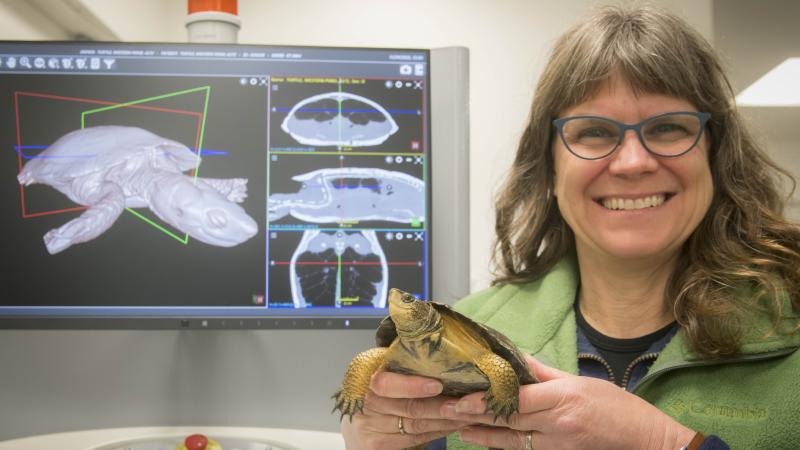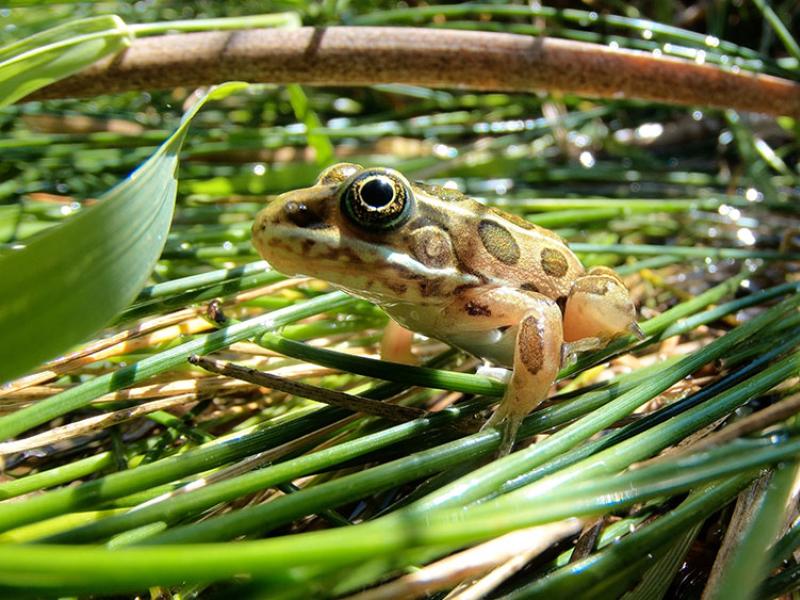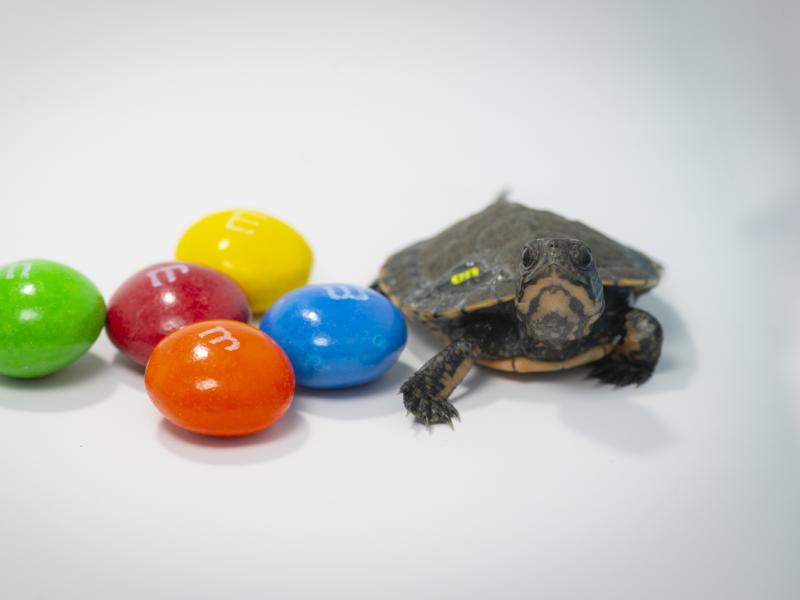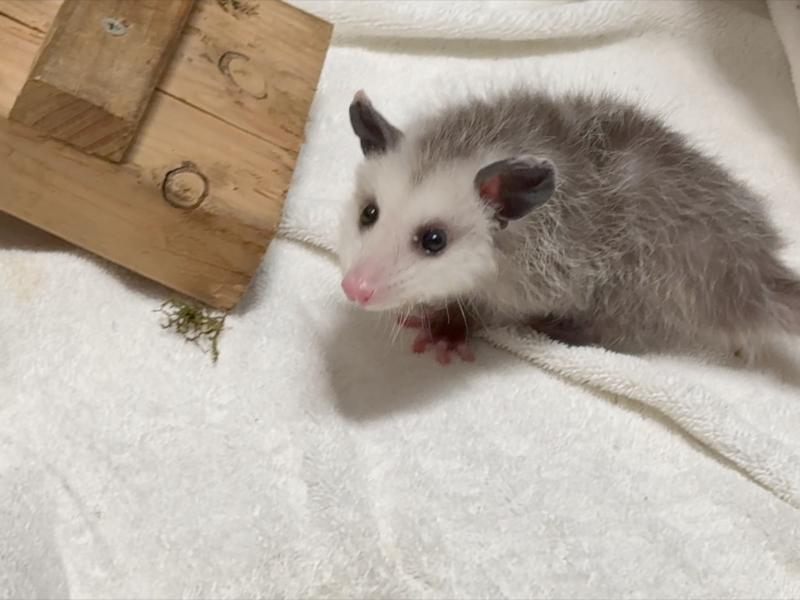
A “typical” day at work is anything but typical for Oregon Zoo veterinary technician Margot Monti. From giving a western pond turtle a CT scan to helping keepers train a cheetah to voluntarily allow a blood draw, Monti has seen a great deal in 26 years at the zoo. She is a member of the team that designed and built the zoo's Veterinary Medical Center in 2011, and she is an active and engaged member in a number of professional veterinary medical groups. Monti received a lifetime achievement award from the Association of Zoo Veterinary Technicians in 2019. Recently she sat down with us to talk about her work.
What is the biggest misconception about your work?
Probably that my job is all animals, all the time. Whenever I have unscheduled time, I might be in the lab examining blood samples, or trying to procure an obscure medication or piece of equipment that one of the vets has requested, or giving a tour, or providing community education. Ensuring we have healthy, well-cared for animals is our primary focus, but there is more to it than the hands-on work people imagine.
What inspired you to choose zoo veterinary medicine?
I have been drawn to the workings of the natural world all my life. Even at the age of 4, I knew I wanted to work with animals. I was always the kid out catching crayfish in the neighborhood creek and looking at all the bugs on the flowers and talking to the birds in the trees. I studied wildlife biology in college, but I was very much interested in doing hands-on work. Rather than the slow incremental process of most research projects, I wanted to see tangible results at the end of the day, and I found great reward in being able to nurse animals back to health.
What was your most exciting moment on the job?
I'd have to say it was on the day that we anesthetized Tusko the elephant to extract a broken tusk. It took months of planning and required incredible teamwork to carry out the biggest, most complicated dental procedure I have ever been a part of. That moment happened when he woke up from the 4-hour-long procedure and stood up gracefully and peacefully. He was eating hay within 15 minutes and went on to heal completely. I am so proud to have been part of that.
Has a gift or donation to the Oregon Zoo Foundation ever impacted your work?
Many years ago, we lacked the means to easily and effectively monitor the heartbeat of very small animals, especially reptiles. There was only so much a stethoscope would pick up, and our big electronic monitor only worked on cat-sized and larger animals. We worked with the Oregon Zoo Foundation, and a wonderful donor helped us to procure a Doppler monitor. It's pretty much the same piece of equipment obstetricians use to detect fetal heartbeats in humans, only with a different-sized detection probe. Suddenly we could monitor our reptiles to ensure an adequate plane of anesthesia throughout procedures, and we could hear when they started to wake up afterward. We still use it today.
What do you do when you’re not working at the zoo?
I have a whole other life as a musician and composer. I play all kinds of wind instruments — alto clarinet and flute predominantly, but also didgeridoo, piano (sort of) and am working on singing more. I have a collection of wind and percussion instruments from around the world. Currently, I'm in a really fun ’70s-rock inspired band that does mostly original tunes. I also enjoy gardening, working on local community science projects, advocating for conservation and Indigenous and racial equity. We are at the helm of enormous changes in the world today, and it is up to each of us to steer it toward a better place.
More News

A leap forward: Endangered frogs hit survival milestone
For the first time, zoo-reared northern leopard frogs survived a winter in the wild at the Columbia National Wildlife Refuge.June 12, 2025

Tiny Endangered Turtle Hatchlings Arrive At Zoo
Seventeen northwestern pond turtle hatchlings, each about the size of a walnut, are making themshellves at home at the Oregon Zoo this summer.June 4, 2025

Awesome opossum! Orphaned baby finds new home at zoo
A tiny opossum found wandering earlier this month has made his way to a new home at the Oregon Zoo.May 28, 2025

